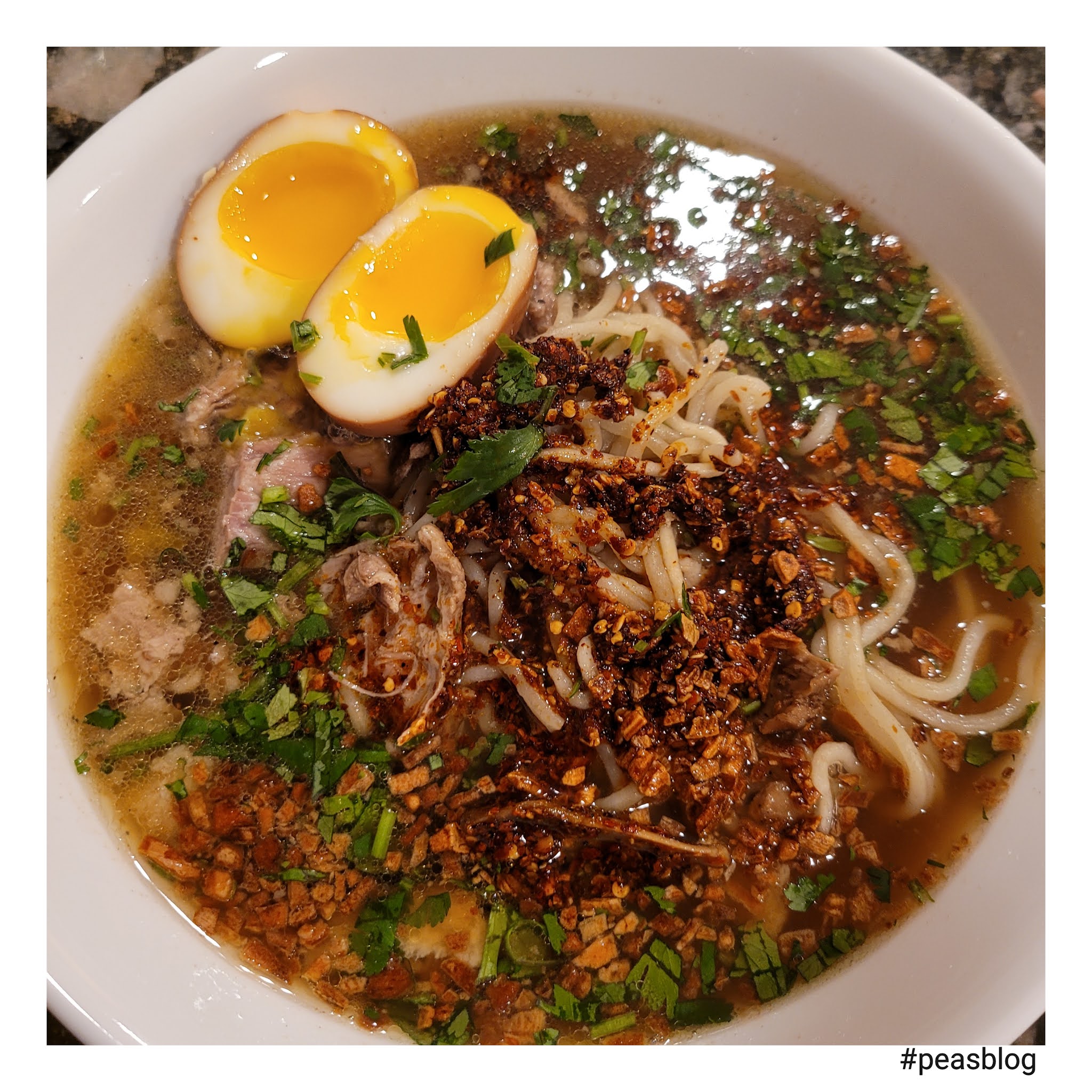Understanding Ramen Noodle Infection: Risks And Precautions
Ramen noodles have become a staple comfort food for many, with their convenience and delicious flavors winning hearts worldwide. However, lurking beneath their savory appeal is a potential health risk known as "ramen noodle infection." This term refers to the various health issues that can arise from consuming contaminated or improperly prepared ramen noodles. Understanding the nature of this infection is crucial for those who enjoy this popular dish, as it can have serious consequences if not addressed properly. As the demand for ramen increases, so does the need for awareness around food safety practices. In this article, we will explore the causes, symptoms, and preventive measures related to ramen noodle infection, ensuring that you can enjoy your favorite dish without worry.
Many people are unaware of the potential dangers associated with ramen noodles, particularly when it comes to foodborne illnesses. With the rise of instant ramen and the increasing popularity of homemade varieties, it is essential to educate ourselves about the risks involved. From improper handling to inadequate cooking practices, the factors contributing to ramen noodle infection are varied, but they can often be avoided with simple precautions. By understanding these risks, we can take steps to protect ourselves and our loved ones.
Throughout this article, we will answer some of the most frequently asked questions about ramen noodle infection, providing you with the knowledge needed to make informed decisions about your food choices. By shedding light on this important topic, we hope to contribute to a safer and more enjoyable ramen experience for everyone.
What is Ramen Noodle Infection?
Ramen noodle infection is a term that encompasses various foodborne illnesses that can occur due to the consumption of contaminated ramen noodles. These infections can be caused by bacteria, viruses, or parasites that thrive in improperly cooked or handled food. Common pathogens associated with ramen noodles include Salmonella, E. coli, and Listeria, which can lead to serious health complications if ingested. To prevent these infections, it is essential to practice good hygiene and follow safe cooking guidelines.
How Can Ramen Noodle Infection Occur?
There are several ways in which ramen noodle infection can occur. Here are some common factors:
- Contaminated Ingredients: Using raw or contaminated ingredients can introduce harmful pathogens into the dish.
- Improper Cooking: Not cooking ramen noodles at the appropriate temperature can allow bacteria to survive.
- Poor Hygiene Practices: Not washing hands or utensils properly can lead to cross-contamination.
- Storing Leftovers Incorrectly: Failing to refrigerate or reheat leftover ramen can promote bacterial growth.
What Are the Symptoms of Ramen Noodle Infection?
The symptoms of ramen noodle infection can vary depending on the pathogen involved, but common signs include:
- Nausea
- Vomiting
- Diarrhea
- Abdominal pain
- Fever
These symptoms can range from mild to severe and may appear within hours or days after consuming contaminated ramen. If you experience any of these symptoms, it is essential to seek medical attention, especially if they persist or worsen.
Who is Most at Risk for Ramen Noodle Infection?
While anyone can potentially contract a ramen noodle infection, certain groups are more vulnerable. These include:
- Children
- Pregnant women
- The elderly
- Individuals with weakened immune systems
It is crucial for these populations to take extra precautions when consuming ramen noodles and to be aware of food safety practices.
How Can You Prevent Ramen Noodle Infection?
Preventing ramen noodle infection involves practicing good food safety habits. Here are some tips to help you stay safe:
- Always wash your hands before handling food.
- Cook ramen noodles thoroughly, ensuring they reach the proper internal temperature.
- Store leftovers in the refrigerator within two hours of cooking.
- Reheat leftovers to at least 165°F before consuming.
- Use fresh ingredients and avoid expired products.
What Should You Do If You Suspect a Ramen Noodle Infection?
If you suspect that you have contracted a ramen noodle infection, it is essential to take action promptly. Here are some steps to follow:
- Stay hydrated by drinking plenty of fluids.
- Rest and allow your body to recover.
- Seek medical attention if symptoms worsen or persist.
- Report the incident to your local health department if you believe it was caused by a restaurant or store.
Is There a Link Between Ramen Noodle Infection and Instant Noodles?
Instant noodles are a convenient option for many, but they are not without their risks. The production process of instant noodles can sometimes lead to contamination if not handled properly. Additionally, many instant noodles are high in sodium and preservatives, which can contribute to health issues. It is essential to check the packaging and ensure that the product is safe to consume.
How to Safely Enjoy Ramen Noodles?
To safely enjoy ramen noodles, consider the following tips:
- Make your ramen from scratch using fresh ingredients.
- Follow proper cooking instructions and hygiene practices.
- Be mindful of portion sizes and nutritional content.
- Experiment with healthy toppings such as vegetables and lean proteins.
Conclusion: Enjoy Your Ramen Responsibly
Ramen noodle infection is a serious concern that can arise from improper food handling and preparation. By understanding the risks and taking necessary precautions, you can continue to enjoy this beloved dish without fear. Remember to prioritize food safety, and always be aware of the symptoms of foodborne illness. With a little care, you can savor the delightful flavors of ramen while keeping yourself and your loved ones safe.
Unraveling The Legend: Who Played Captain Jack Sparrow?
The Anticipation Of Crazy Rich Asians 2: What We Know So Far
Unveiling The Journey Of Ilan Tobianah: A Trailblazer In Modern Innovation


